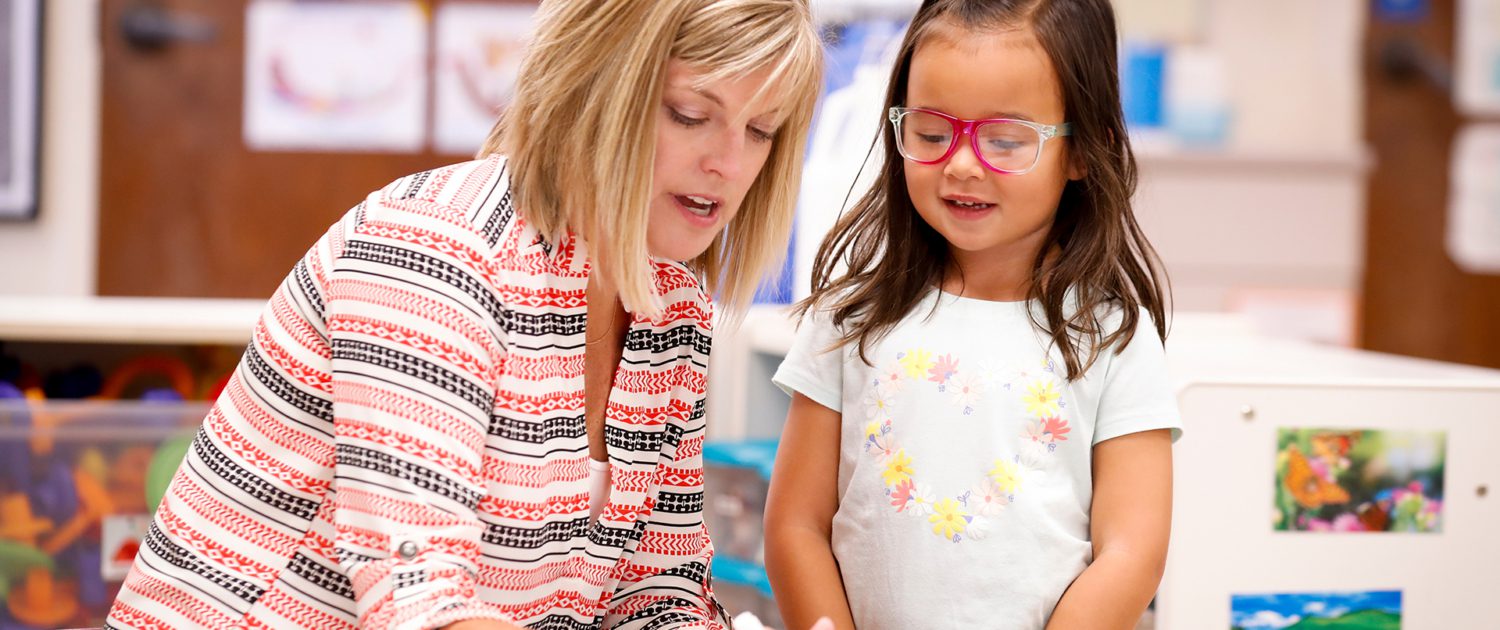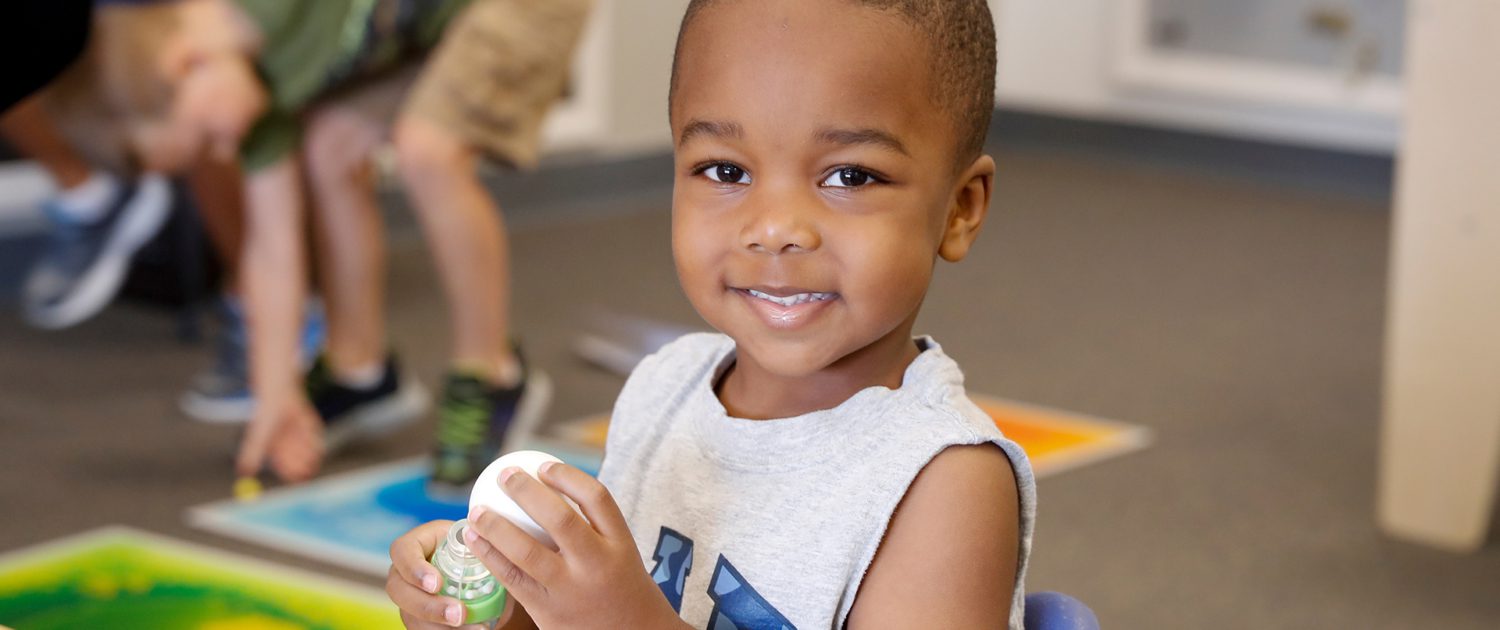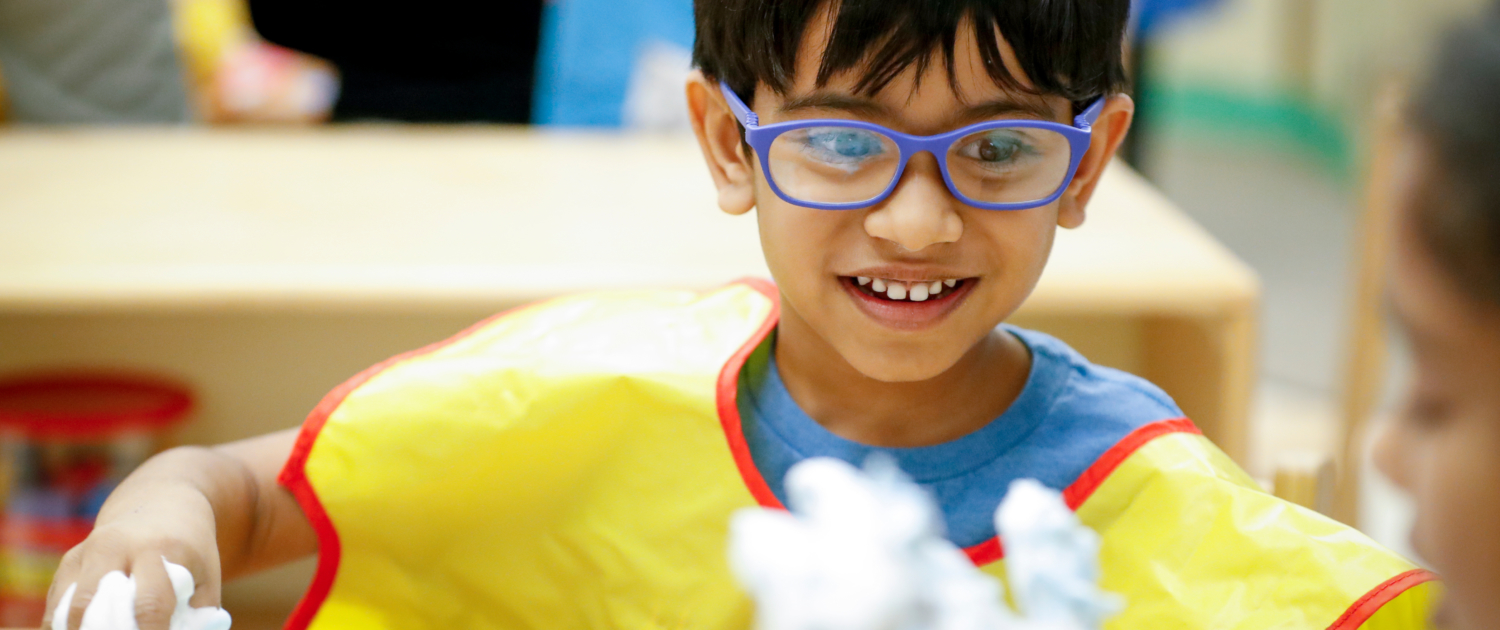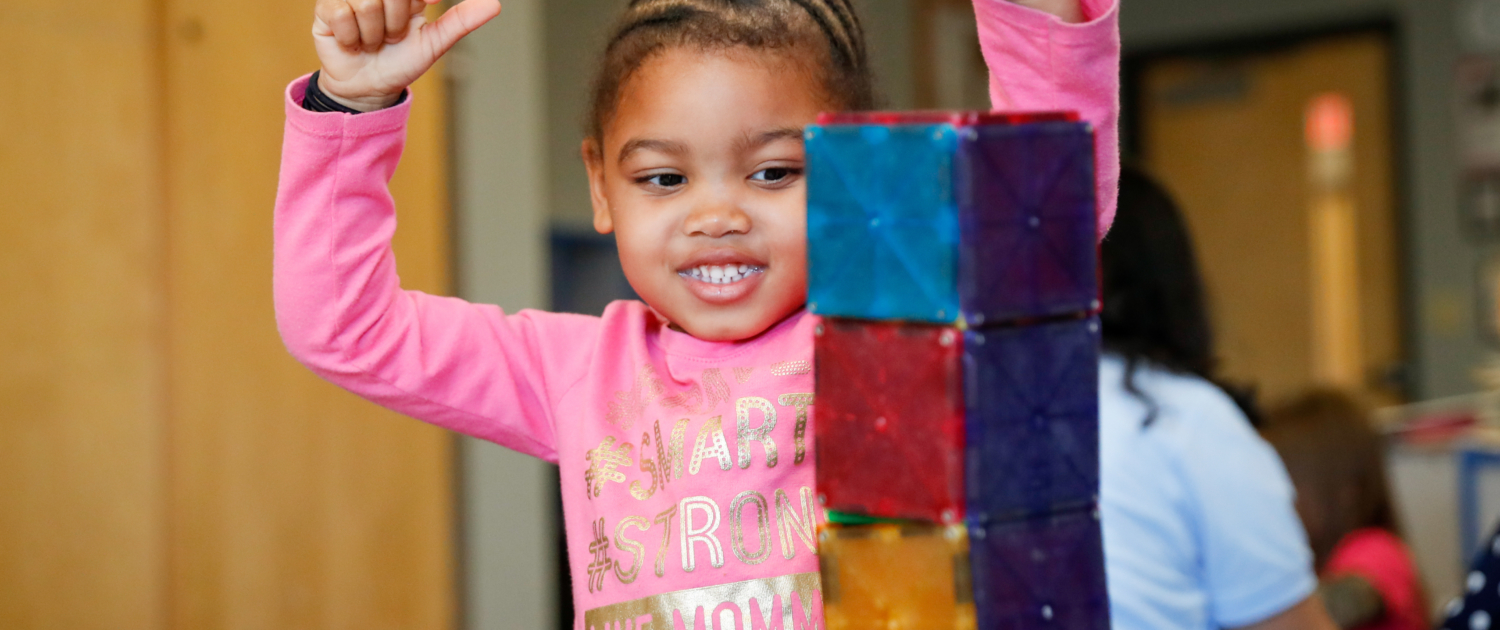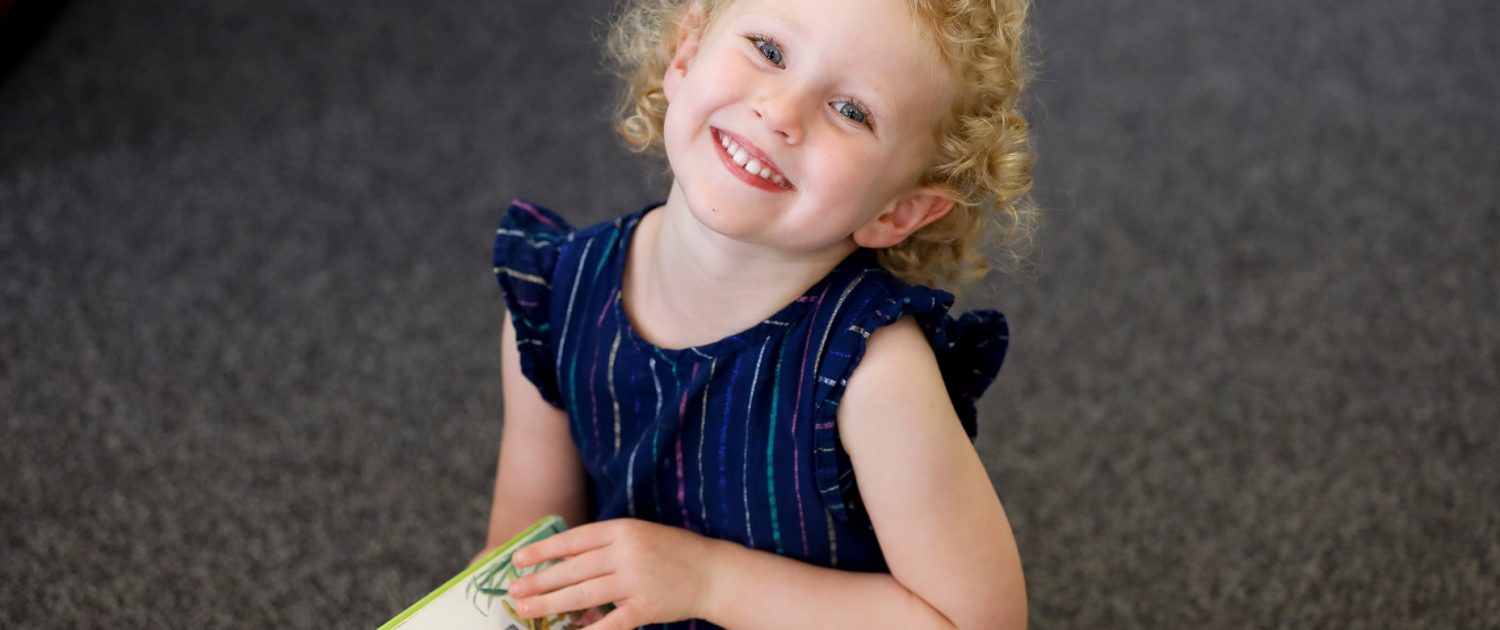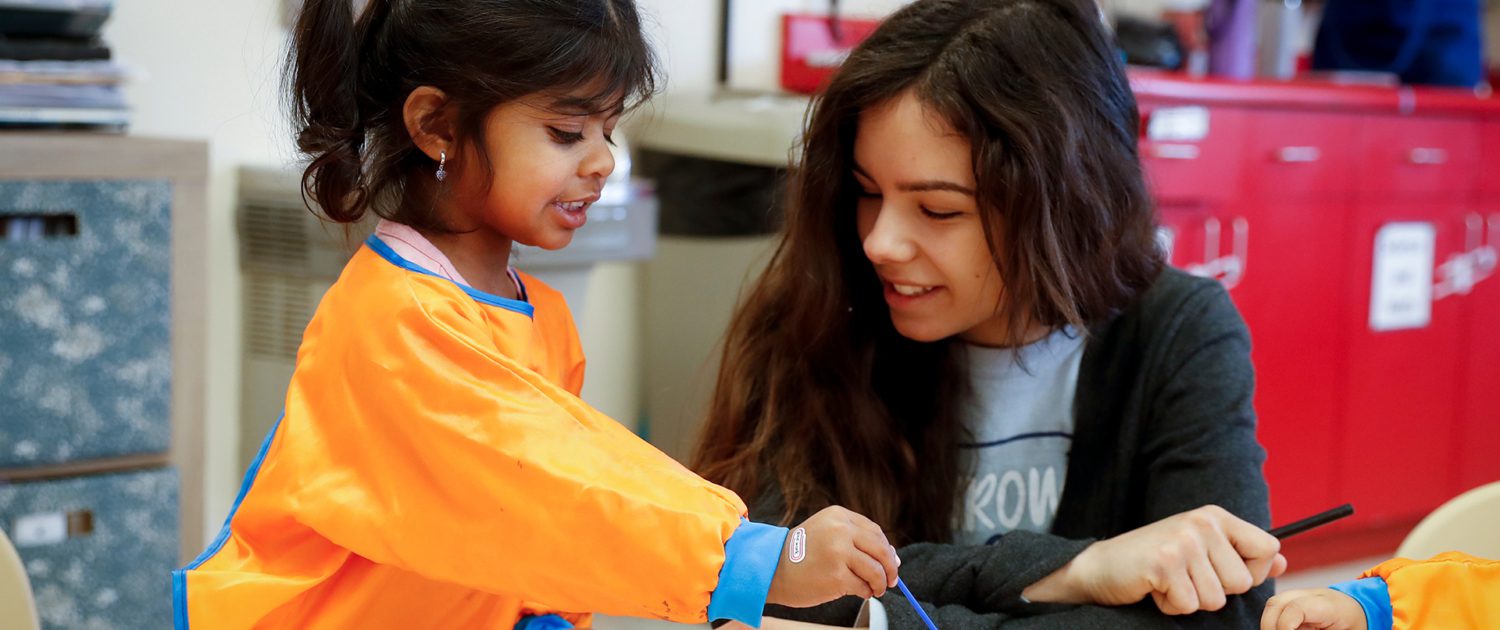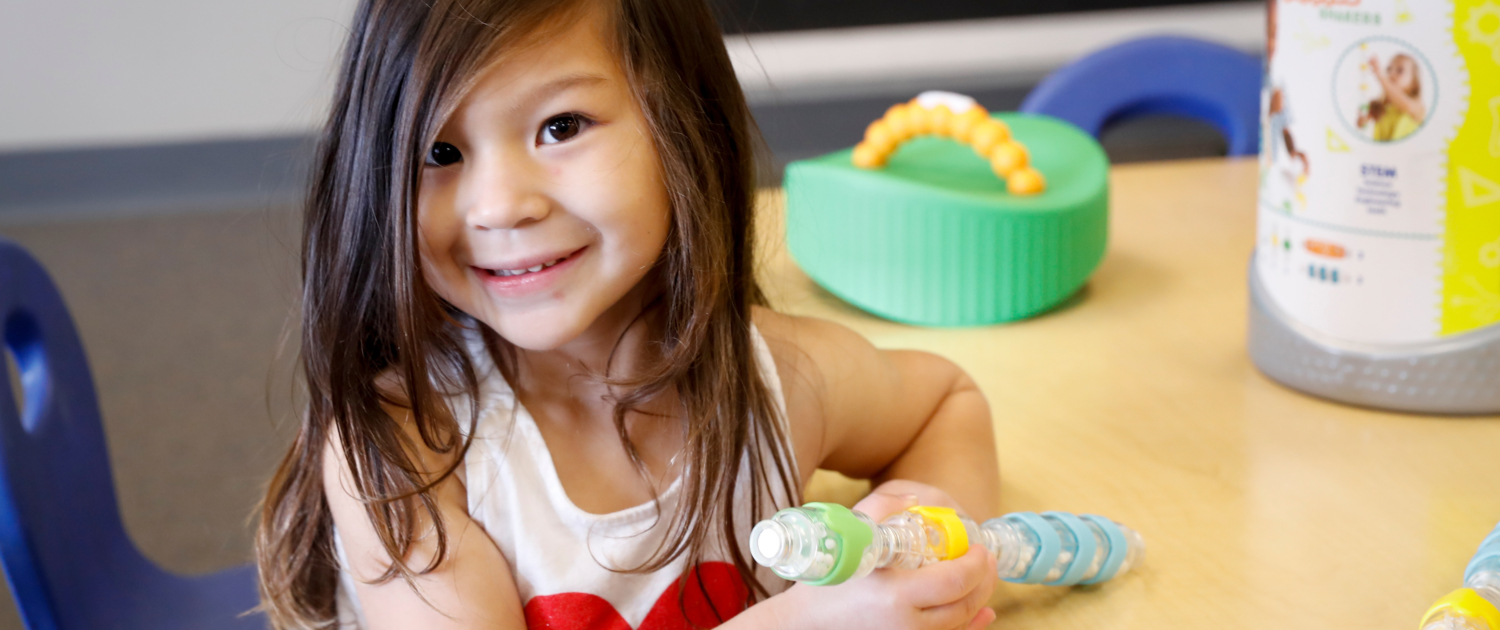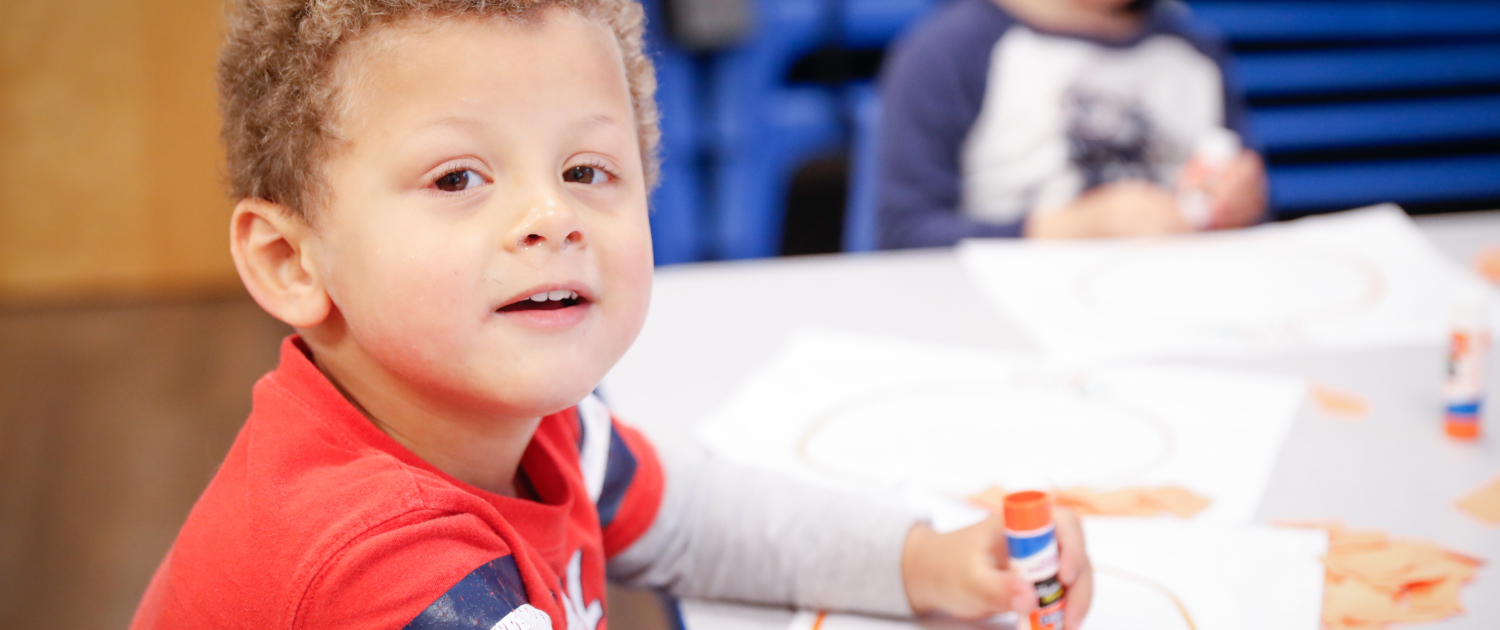Quality Early Education is Critical
Did you know that 90% of a child’s brain is developed by age 5? A newborn’s brain is about 25% of the size of the average adult’s brain. It doubles in size in the first year and keeps growing to about 80% of adult size by age 3 and 90%, nearly fully grown, by age 5.
A strong educational foundation is important, beginning well before a child enters kindergarten. And it’s more important than ever for children to have opportunities to build social skills as well as academic skills in order to be prepared for kindergarten, elementary school, and life in general.
Preschool and pre-K are very vulnerable times for children to not be in school. At ages 3-5, young children are learning to develop trust in adults outside the family. Stability is important and preschool and pre-K programs are great places for children to build these types of trusting relationships.
Additionally, research has shown that children who do not attend preschool have a lower level of interest in learning new things as well as lower memory and retention rates. Simply put, children who don’t have the benefit of a quality preschool education have a lower chance of success in elementary school, high school, and in adulthood.
According to a survey done by the National Institute for Early Education Research (NIEER) at the Rutgers Graduate School of Education, when children were out of school due to the pandemic:
- The number of parents citing emotional symptoms among their children rose from 3% to 9%.
- The number of parents citing behavior problems increased from 20% to 25%.
- The number of parents citing evidence of prosocial behavior decreased from 26% to 16%.
A quality preschool education is more important than ever.
Children need a fun learning environment to counteract the stress of today’s world. The following are the benefits of a great preschool:
Increased Attention Span
Attending preschool may increase a child’s attention span. This is likely due to the structured environment and activities that are provided in preschool, which help children learn to focus and attend to tasks for longer periods of time. In preschool, children are typically asked to participate in activities that require sustained attention, such as listening to a story, working on a puzzle, or completing a craft project. These activities can help children practice and improve their attention skills.
Foundation for Later-Education
Preschool can provide a strong foundation for later education by introducing young children to the routines and expectations of a classroom setting and by teaching them basic skills such as listening, following directions, and working independently or in groups. Preschool can also help children develop social and emotional skills, such as teamwork, communication, and self-regulation, which are important for success in school and adulthood.
In addition, preschool can expose children to a variety of learning experiences and materials, such as books, songs, art activities, and educational games, which can help them build a love of learning and a curiosity about the world around them. Overall, preschool can play a critical role in helping children develop the skills and habits they need to succeed in school and beyond.
Promoting Physical Health
Preschool can promote physical health in a number of ways. Early childhood education programs incorporate physical activity and movement into their daily schedules. This can include activities such as outdoor play, structured games and sports, and dance or movement classes. These types of activities can help young children develop gross motor skills, improve their coordination and balance, and increase their overall physical fitness.
In addition to structured physical activity, these programs also provide children with opportunities to explore and engage in physical play. This can involve climbing, running, jumping, and throwing and catching balls, which can help children develop their fine motor skills and coordination.
Fun in Learning
Very young children learn best when they can interact with educators and participate in hands-on learning. Play-based learning is also very important. Children need to have fun while they learn, and everything is more fun when children can be engaged in activities and learn with friends. Parents in our schools have told us that their children are much happier when they can go to school to see their friends and practice their skills every day in a fun-filled environment.
Benefits of the Ascend Curriculum
Cadence Education wants to make sure your child’s future is bright and full of unlimited possibilities. That’s why we have designed our Ascend Curriculum to foster curiosity in young children and to promote independence, confidence, patience, empathy, creativity, and optimism.
The Ascend Curriculum recognizes the need to begin educating children in their first year of life and has a formula to help infants begin to learn and achieve their milestones in an age-appropriate way. As children grow older, the Ascend Curriculum grows with them, introducing new concepts as children are ready to move forward. The Ascend Curriculum uses individualized instruction and a skills-based approach to prepare children to thrive — in kindergarten and beyond.
Play-Based Approach
We teach age-appropriate skills through a play-based approach to keep children happy and engaged.
Well-Rounded Learning
Not only do we teach academics, but we also focus on the social and emotional skills needed to be successful in school and life.
Kind Child Culture
Kindness is modeled by teachers and taught to children, and cultural differences are accepted and celebrated.
Small Group Lessons
The Ascend curriculum allows for individualized attention and personalized interactions, catering to the unique needs of each child. Ascend uses skill-based learning, which is proven to help students think critically, learn to solve problems, and become more independent. These skills are important pieces of kindergarten readiness.
Ascend Caters To The Unique Needs Of Each Child
Because the Ascend curriculum allows for a balance of structure and flexibility, teachers can provide the perfect learning environment for each child to thrive.
Ascend Builds Confidence
Ascend progressively introduces learning concepts. For example, we start teaching letters that only have one sound (for example, M) and progress to more difficult letters (like C), allowing children to experience a sense of accomplishment.
Ascend Promotes Independence
By challenging students who need more challenging work and helping children who need a little more guidance, our students are encouraged to be unique and independent and are able to progress at their own pace.
Ascend Promotes Creativity
By avoiding activities such as tracing and copying artwork and focusing on activities that allow children to create their own unique projects, we stimulate brain activity and encourage children to be creative.
The Cadence Schools Experience
Cadence schools help children thrive. We provide a safe, nurturing, loving, home-like atmosphere where children feel comfortable and can focus on learning. Our skills-based curriculum is proven and prepares children for elementary school and beyond. We teach our students patience, empathy, and kindness through our Kind Child Culture.
We spark creativity by giving children unique opportunities to express themselves and their individual interests. We create opportunities for children to experience small wins — building confidence and a lifetime love of learning. We develop children’s unique collections of skills, interests, and passions — so they can thrive in their own ways. At our schools, learning is conducted in smaller groups, which increases engagement, decreases problematic behaviors, and allows us to offer more individualized attention.
In a recent Net Promoter Score (NPS) survey, our parents rated us excellent because of the exceptional care and education that we provide.
If you would like to learn more about how we provide parents with peace of mind by giving children an exceptional education every fun-filled day in a place as nurturing as home, contact us today.

